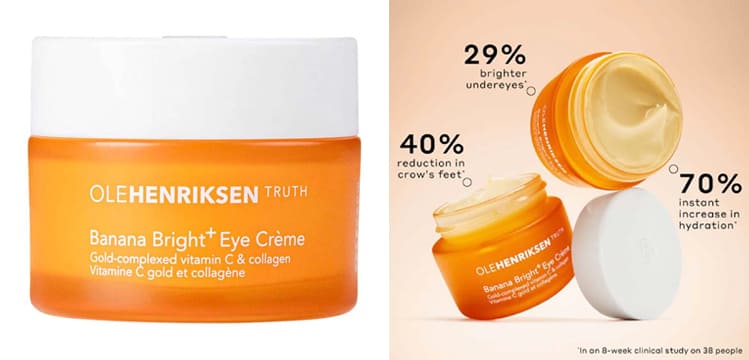How Much Melatonin Should I Take? Doctors Share Supplement Advice
Up to one in three Americans don’t get enough sleep, and millions struggle with actual sleep disorders. That’s fueled the rise of supplements, like melatonin, which claim to help you conk out on time and regulate your circadian rhythm.
Social media is packed with testimonials from people who swear it’s done wonders for their sleep. But for all the buzz surrounding this supplement, there are still a lot of questions swirling around it, including, “How much melatonin should I take?”
After all, there’s no recommended daily intake of melatonin, which kind of puts dosing into a gray area—for people outside the medical community, at least.
If you’re interested in taking melatonin, it’s a good idea to check in with a healthcare provider first, says W. Christopher Winter, M.D., a neurologist and sleep medicine physician with Charlottesville Neurology and Sleep Medicine and host of the Sleep Unplugged podcast. Among other things, supplements aren’t tightly regulated by the Food and Drug Administration (FDA) and many people don’t need melatonin, he points out. Plus, if you’re struggling with sleep, it’s wise to get an evaluation to see what could be going on.
That said, here’s what three sleep specialists want you to know about melatonin dosing.
Meet the experts: Andrew R. Spector, M.D., is a sleep medicine specialist and associate professor of neurology at Duke University School of Medicine. Beth Malow, M.D., is the director of the Vanderbilt Sleep Division at Vanderbilt University Medical Center. W. Christopher Winter, M.D., is a neurologist and sleep medicine physician with Charlottesville Neurology and Sleep Medicine and host of the Sleep Unplugged podcast.
Melatonin must-knows
Let’s back up a moment: Melatonin is a hormone that your brain produces in response to darkness. It helps regulate your internal clock (aka your circadian rhythm) and the timing of your sleep, according to the National Center for Complementary and Integrative Health (NCCIH).
While your body makes its own melatonin, research shows that more US adults are taking melatonin supplements in recent years. However, doctors say these supplements should really only be used under very specific circumstances.
“Melatonin is indicated for the treatment of circadian rhythm disorders and REM sleep behavior disorder,” says Andrew R. Spector, M.D., sleep medicine specialist and associate professor of neurology at Duke University School of Medicine. “There’s also a role for melatonin therapy for people who have trouble sleeping caused by beta blocker medications.” Shift workers and people with jet lag may consider using melatonin, too, Dr. Winter says.
Sleep medicine specialists don’t usually recommend taking melatonin regularly outside those parameters. “It rarely makes sense for the average adult—and especially child—to take melatonin,” Dr. Winter says, underscoring that melatonin is not a sleep aid, but a chemical that regulates the timing of sleep. “It’s something our bodies make naturally, so taking more is generally not necessary,” he says.
How many forms of melatonin are there?
Melatonin, which is sold over the counter, usually comes in the form of gummies and pills. However, you can also find it in powder form, which can be added to water and other drinks. These melatonin supplements tend to have doses that range from 0.5 milligrams to 10 milligrams.
What factors should I consider when determining how much melatonin to take?
The medications you’re on matters, says Beth Malow, M.D., director of the Vanderbilt Sleep Division at Vanderbilt University Medical Center. “Some interact with melatonin,” she adds.
Those include blood thinners, seizure and diabetes drugs, birth control pills, and more, Dr. Spector says. “People on those medications should not take melatonin without a consultation with their health care providers,” he says. (Your age and health history may also play a role in dosing.)
How much melatonin should I take?
It depends. “When treating circadian rhythm disorders, a typical dose is 0.5 milligrams,” Dr. Spector says. “For REM sleep behavior disorder, it can be much higher, on the order of 10 to 15 milligrams.”
If you’re struggling with sleep due to taking beta blockers, he says that taking between 2.5 to three milligrams is typical.
For jet lag, three to five milligrams may be a good dose, Dr. Winter says. But Dr. Malow says you can also start with a low dose, like one milligram, and see how you do.
When should I take it?
Everyone is different, but Dr. Malow says she usually recommends taking melatonin about 30 minutes before bedtime. She suggests coupling that with a relaxing activity, like reading.
What should I do if I miss a dose?
For most people, Dr. Winter says you shouldn’t worry if you don’t have melatonin on any given night. In fact, he points out that most people shouldn’t be taking melatonin every night anyway.
However, Dr. Spector says that people with REM sleep behavior disorder who take melatonin and miss a dose are at risk for having a dream-enactment episode that night (meaning, kicking, punching, and acting out your dreams while you sleep). So, it’s a good idea to call your doctor about next steps.
What happens if I take too much?
You might not feel so hot the next day. These are the biggest signs you’ve had too much melatonin, according to Dr. Spector:
- Sleepiness
- Nausea
- Dizziness
- Headaches
In general, though, “grogginess in the morning is the most common side effect,” Dr. Malow says.
Bottom line
Again, if you’re considering taking a melatonin supplement, it’s a really good idea to talk to a healthcare professional first. They can go over why you’re considering this in the first place and help you decide if this is the best solution for your sleep issues.
But doctors stress that you shouldn’t rely on melatonin as a sleep aid. “Melatonin should not be thought of as a treatment for insomnia,” Dr. Spector says. “We need to move away from the idea that melatonin is a sleeping pill that people take every night to try to fall asleep faster or stay asleep longer.”
Dietary supplements are products intended to supplement the diet. They are not medicines and are not intended to treat, diagnose, mitigate, prevent, or cure diseases. Be cautious about taking dietary supplements if you are pregnant or nursing. Also, be careful about giving supplements to a child, unless recommended by their healthcare provider.
Share this article:












